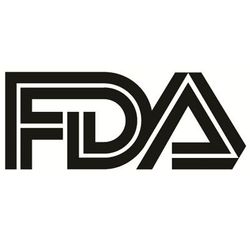RX Review: Leveraging siRNA in FCS Management - Episode 7
RX Review: Barriers, Real-World Implementation, and Future Directions in FCS
Despite boasting a pair of US Food and Drug Administration-approved therapies for familial chylomicronemia syndrome (FCS), the disease still represents a significant area of unmet need in cardiology.
In the closing segment of our 7-part video series, host Viet Le, DMSc, PA-C, a preventive cardiology PA at Intermountain Health and the former president of the Academy of Physician Associates in Cardiology, and panelist Christie Ballantyne, MD, chief of cardiovascular research at Baylor College of Medicine and principal investigator of the PALISADE trial, examine real-world barriers that continue to challenge optimal FCS management.
Ballantyne notes that, despite advances in diagnosis and therapy, many patients still face obstacles related to genetic testing access, payer authorization, and fragmented care. These challenges can delay treatment initiation, even when patients meet clinical criteria. Accurate documentation and the use of validated diagnostic scoring systems are essential for navigating payer requirements, particularly after the approvals of olezarsen (Tryngolza) in late 2024, and plozasiran (Redemplo) on November 18, 2025, which both require clear diagnostic justification before coverage is granted.
The discussion turns toward practical strategies to improve real-world implementation. Ballantyne underscores the need for structured workflows that integrate primary care clinicians, lipid specialists, dietitians, and cardiologists. He highlights how early referrals, consistent follow-up, and comprehensive patient support can significantly reduce delays and improve adherence to therapy. Education remains a cornerstone of this effort, both for clinicians who may be unfamiliar with FCS and for patients who must manage a complex, lifelong condition.
The segment concludes with a hopeful outlook. Le and Ballantyne emphasize the future of FCS management will likely be defined by earlier diagnosis, improved care coordination, and ongoing innovation in therapy and testing. With the availability of targeted treatments for the first time, clinicians now have tools can meaningfully shift the trajectory of this severe condition. Continued investment in awareness, education, and interdisciplinary communication will be essential to ensure patients fully benefit from advancements introduced in 2025 and beyond.
Relevant disclosures for Ballantyne include Arrowhead Pharmaceuticals, Inois, Merck, Novartis, Novo Nordisk, New Amsterdam, Esperion, AstraZeneca, Eli Lilly, and others. Relevant disclosures for Le include Amarin, Bayer, Esperion, Idorsia, Janssen, Novo Nordisk, Novartis, Lexicon Pharmaceuticals, and Pfizer.



